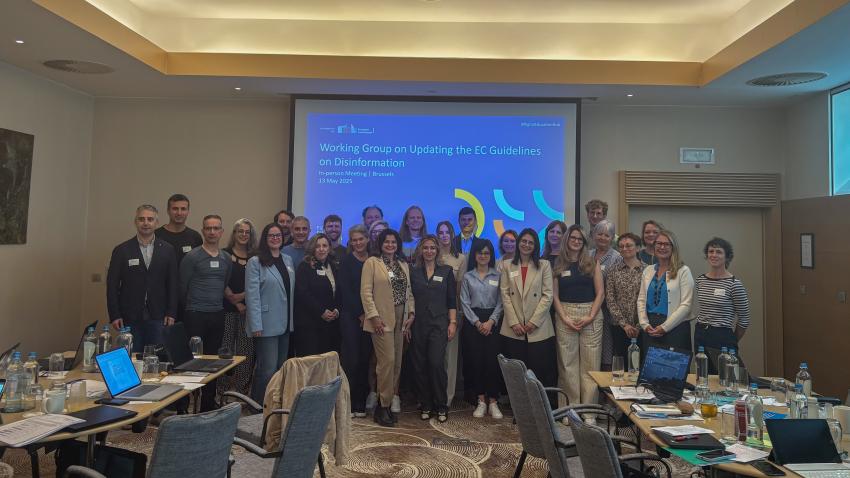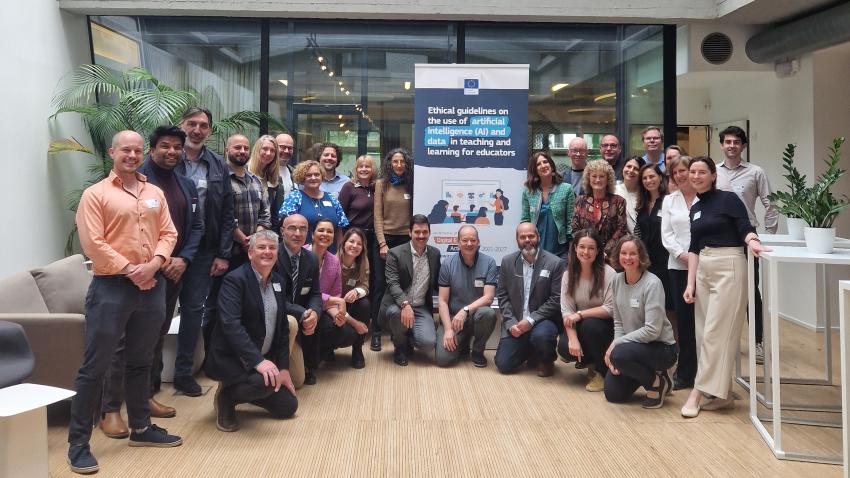Revising guidelines on disinformation and AI ethics – workshops insights
Organised by the European Digital Education Hub, the workshops’ outcomes will contribute to the upcoming Digital Education Action Plan 2030 Roadmap.
The aim of both May workshops was revising and refining two sets of EU guidelines: tackling disinformation and promoting digital literacy, and the ethical use of artificial intelligence (AI) and data in teaching and learning.
Both guidelines are part of the European Commission’s Digital Education Action Plan for 2021–2027, which aims to enhance digital competence, resilience, and inclusion in education.
The discussions focused on strengthening the chapter structure to enable easy implementation and adaptability of the revised guidelines in diverse educational contexts. Highlights from the meeting included:
- New chapter focuses, such as pre-bunking and emotional awareness, the role of generative AI, social media and policy recommendations tailored for school leaders and decision-makers.
- Practical tools for implementation, including gamified learning, role-play activities, fact-checking tasks and emotional reflection exercises.
The experts also discussed the need for more accurate translations and closer links between the guidelines and national policy frameworks.
The updated guidelines will be translated into all 24 official EU languages to ensure wide accessibility.
Experts discussed and elaborated on strategies aimed at providing educators with practical guidance on:
- Responsible and ethical use of AI in classrooms
- Safeguarding data privacy and ensuring academic integrity
- Fostering AI literacy among the learners
Experts also highlighted the need for an updated glossary that includes newer terms such as “GPT”, “prompt” and “hallucination”.
Why these updates matter
In an era of digital misinformation and rapidly evolving technology, these guidelines are vital in empowering educators. They aim to:
- provide practical, evidence-based tools for use in the classroom
- strengthen resilience against disinformation and manipulation
- encourage the ethical, transparent and inclusive use of AI
- foster a digitally competent educational community across Europe
The revised guidelines are expected later this year and will contribute to the forthcoming Digital Education Action Plan 2030 Roadmap.
Last updated:




